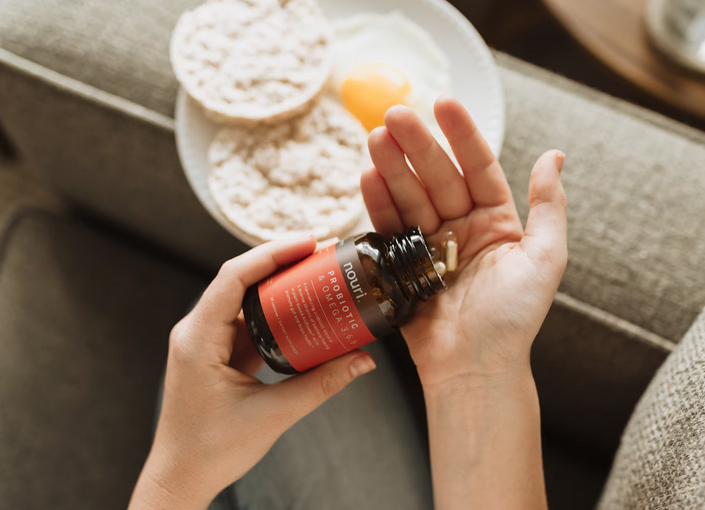Are you feeling overwhelmed by the endless aisle of nutritional supplements at your local store? With countless options promising everything from increased energy to improved immunity, it’s no wonder many of us are left scratching our heads about what we truly need. We’ll demystify the world of vitamins, minerals, and herbal remedies with expert insights from medical professionals. Whether you’re looking to boost your health or simply fill in dietary gaps, we’ve got you covered.
Know Your Needs
First off, let’s get one thing straight – not everyone needs the same supplements. Your age, gender, lifestyle, and health conditions all play a role in determining what your body needs. For example, pregnant women often need extra folic acid, while older adults might benefit from vitamin D and calcium for bone health. The key is to understand your specific needs. A great way to start is by having a chat with your healthcare provider. They can help you figure out what’s right for you based on your medical history and lifestyle.
Ensure Quality

Here’s a little insider secret: the supplement industry isn’t as tightly regulated as you might think. That means the quality can vary widely from one brand to another. Look for products that have been third-party tested by organizations like USP, NSF, or ConsumerLab. These certifications ensure that what’s on the label is actually in the bottle. Also, be wary of supplements that make outrageous claims. If it sounds too good to be true, it probably is. Supplements like Isagenix Australia have been thoroughly tested and reviewed to ensure the highest quality for their customers.
Understand That More Isn’t Always Better
It’s easy to fall into the trap of thinking that if a little is good, a lot must be better. But when it comes to supplements, more isn’t always better. Taking too much of certain vitamins and minerals can be harmful. For instance, excessive vitamin A can lead to toxicity, and too much iron can cause serious health issues. Always stick to the recommended dosages and avoid doubling up on supplements that contain the same nutrients.
Get Food First

Let’s not forget that the best source of nutrients is a balanced diet. Supplements are meant to fill in the gaps, not replace whole foods. Focus on eating a variety of fruits, vegetables, lean proteins, and whole grains. If you’re doing that, you might not need as many supplements as you think. Plus, whole foods provide a complex mix of nutrients that work together in ways that supplements can’t replicate.
Be Aware of Interactions
Here’s something that often gets overlooked – supplements can interact with medications. For example, St. John’s Wort can interfere with antidepressants, and vitamin K can affect blood thinners. Always tell your doctor about any supplements you’re taking, especially if you’re on prescription meds. They can help you avoid potentially dangerous interactions.
So, are you taking the right nutritional supplements? The answer depends on your individual needs, the quality of the products you’re using, and how they fit into your overall health plan. Supplements can be a great tool, but they’re not a magic bullet. The best approach is to be informed, consult with your healthcare provider, and focus on a balanced diet. Remember, your health is a journey, and supplements are just one piece of the puzzle.…



 Appetite suppressants are substances that help to reduce hunger and cravings. There are various types of appetite suppressants available, including natural and prescription options. Natural appetite suppressants include herbs and supplements, such as hoodia, green tea extract, and chromium picolinate. Prescription appetite suppressants are drugs that the FDA approves to treat obesity. These include drugs such as phentermine, diethylpropion, and bupropion. Appetite suppressants work by affecting various neurotransmitters in the brain, including norepinephrine, serotonin, and dopamine.
Appetite suppressants are substances that help to reduce hunger and cravings. There are various types of appetite suppressants available, including natural and prescription options. Natural appetite suppressants include herbs and supplements, such as hoodia, green tea extract, and chromium picolinate. Prescription appetite suppressants are drugs that the FDA approves to treat obesity. These include drugs such as phentermine, diethylpropion, and bupropion. Appetite suppressants work by affecting various neurotransmitters in the brain, including norepinephrine, serotonin, and dopamine. Most people will only need to take appetite suppressants for a short period, typically no more than 12 weeks. If you find that your hunger is not diminishing after a few weeks of taking the medication, it is unlikely that continuing the treatment will be effective. You should talk to your doctor about other options if this happens.
Most people will only need to take appetite suppressants for a short period, typically no more than 12 weeks. If you find that your hunger is not diminishing after a few weeks of taking the medication, it is unlikely that continuing the treatment will be effective. You should talk to your doctor about other options if this happens.
 CBD edibles are discrete. With these edibles, you can take your favourite snacks without anyone knowing what you are taking. These edibles look like regular snacks, and no one will know what you are taking. If you are hesitant about vaping CBD oil or taking the drops, you can consider taking edibles.
CBD edibles are discrete. With these edibles, you can take your favourite snacks without anyone knowing what you are taking. These edibles look like regular snacks, and no one will know what you are taking. If you are hesitant about vaping CBD oil or taking the drops, you can consider taking edibles.


